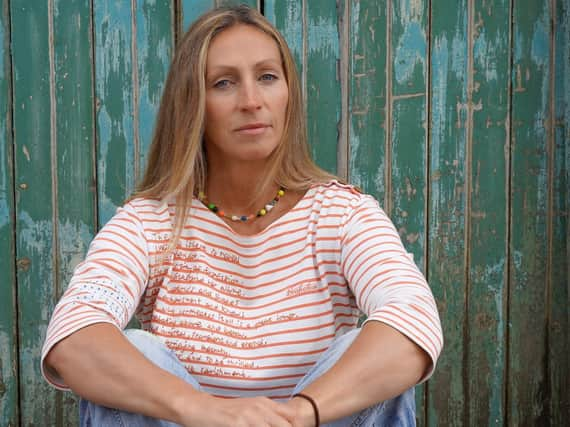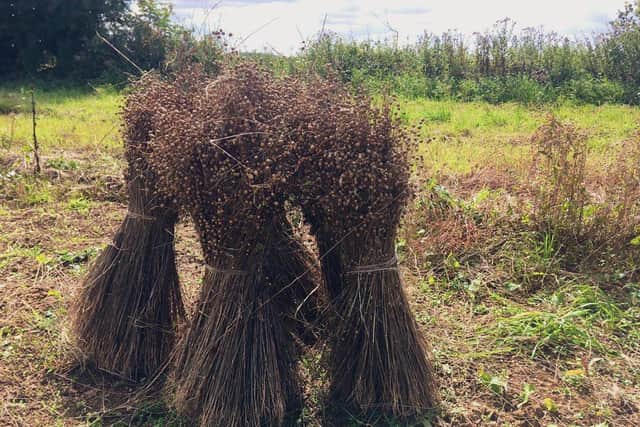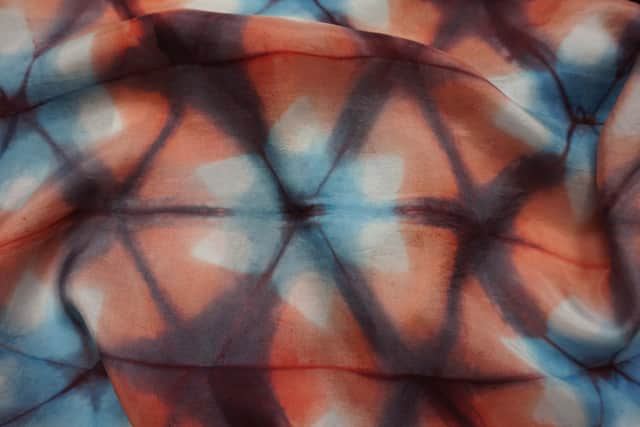Simply thread: The North West England Fibreshed on exploitative fast fashion and changing the world


Chances are, they don't yet think 'fast fashion', but they should. In fact, the clothing industry accounts for an estimated 10% of global greenhouse gas emissions - more than aviation and shipping combined.
It boils down to the origins of the materials which make our clothes. The low-quality petrochemicals used to create reams of inexpensive, synthetic materials such as acrylic, nylon, and polyester are all derived from fossil fuels, meaning that those wear-em-and-chuck-em bits and bobs are essentially made of the same plastic as you'll find in a water bottle.
Advertisement
Hide AdAdvertisement
Hide AdAnd the fast fashion boom of the past decade has seen suppliers stock high and sell low, fuelling the explosion of a cheap, addictive, and ever-expanding industry which owes its entire existence to the exploitation of sensitive and biodiverse ecosytems. That comes with a hidden yet extortionate carbon price tag and it's killing the planet.


The North West England Fibreshed is everything the fast fashion industry isn't. A tight-knit community of local textile professionals who aspire to use bioregional materials grown regeneratively across the North West, the Fibreshed is all about sustainability.
Having come to fruition in 2010, the international Fibreshed movement is centred on local fibres, local dyes, and local labour, supporting skilled local workforces in their efforts to provide truly regenerative and sustainable clothing. The North West England Fibreshed was founded by botanical dyer and educator, Justine Aldersey-Williams of The Wild Dyery in March 2020.
"The awareness about the climate crisis is ever-increasing and my motivation is to be a good ancestor for my children," says Justine. "It started with me wanting to mend some jeans with naturally-dyed British yarn which, despite this country's centuries'-worth of textile history, was impossible because we've off-shored an entire industry.
Advertisement
Hide AdAdvertisement
Hide Ad"On top of that, it's now stacked against ethical practice because of a capitalist, colonialist system which values certain human lives more than others and exists to extract," adds Justine. "The whole system is topsy-turvy: things like fossil fuel subsidies actually make the destruction of the planet cheap and doing things sustainably expensive.


"Capitalism is designed to exploit and punish women in particular, and the fashion industry relies on the exploitation of other cultures," Justine explains, with women of colour making up 80% of garment workers. "That's what I'm trying to address and, while it's like trying to turn the Titanic, I feel hopeful because the more you learn, the better you can do."
Now boasting nine member producers from Sedbergh to Lancaster to the Wirral, the North West England Fibreshed holds monthly Zoom meetings to coordinate their efforts. Rejecting the concept of unethical global supply chains which rely on horrific environmental degradation and human exploitation, they work to offer consumers a choice.
And that choice is simple: imported, non-renewable, carbon-heavy products or locally-grown, renewable, carbon-neutral products. One pollutes throughout its entire lifespan, the other has the potential to reverse the climate crisis.
Advertisement
Hide AdAdvertisement
Hide Ad"Establishing the Fibreshed has been a very steep learning curve, but I've loved it," says Justine. "We started just as lockdown was announced, so it's been pretty tricky to get out and meet people, but to come across those who have been championing regional and ethical practice for years, and who now feel like the tide may be turning, is incredible.
"The goal is to bring fashion back down to Earth by incentivising farmers to reintroduce textile crops, but we have to create the manufacturing and processing infrastructure to make that viable," she adds. "I also think consumers are willing to engage - the issue is that there's a multi-billion-pound industry concealing the truth from people, which is frustrating.
"It's great to be involved in something like this, but it feels daunting because we're not there by a long shot," continues Justine. "Telling our story will help raise awareness of the ridiculousness of the global economic system we're in and we're creating a really strong community of brilliant people who are committed to this cause.
"Ultimately we're trying to create systemic change by cooperating and we need the power of people to get this done."